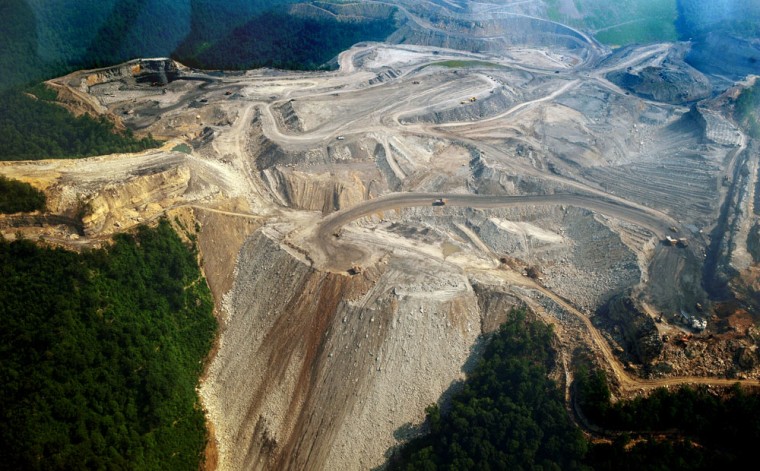President Barack Obama touched off a new environmental skirmish with his decision to open vast new areas of the American coastline to offshore oil drilling. But as loud as that battle is going to get, it is nothing compared with the real energy war to come.
I speak, of course, of the Coal War.
Forget whatever else you hear about energy policy, the real fight — and the real political problem — this year in Congress will be how to deal with our nagging reliance on the most abundant component of our carbon-based patrimony.
We can talk until we're blue in the face about offshore drilling, wind power, natural gas, and energy conservation ... but the short-term drift of history still dictates a heavy reliance on the dirtiest and deadliest of all fuels: coal.
The big question in the energy bill — if there is one — is how and whether Congress will ask the American people to pay for the cost of controlling the environmental consequences of that reliance.
At its core, the president’s energy vision calls for switching our transportation system from oil to plug-in electricity. But 45 percent of all electricity in the country is still generated by coal-fired power plants. In other words, we run the real risk of merely replacing one polluting and increasingly scarce fuel, petroleum, with an abundant but even more environmentally troublesome one, coal.
An energy bill that, among other things, would tax pollution caused by burning fossil fuels was passed by the House last year. It’s gotten nowhere in the Senate. Obama’s drilling announcement was designed to get the Senate’s attention — and garner some Republican support.
But opening up offshore drilling prospects is politically, the easy part. I think the president can get that piece of the puzzle.
The hard part is going to be convincing senators from coal-producing and/or electricity-exporting states to go along with any sort of carbon tax.
States with power plants that generate electricity from coal read like a roster of presidential swing states. Among them: Ohio, Indiana, Illinois, Pennsylvania, Missouri and North Carolina. And other states with major coal commitments include: Georgia, Arizona, Kentucky and Wyoming.
Getting 60 votes for some kind of carbon-pollution tax, even if it’s in the most attenuated “cap-and-trade” form, will be next to impossible.
The political problem with coal is more than geography, it is supply: we just have so much it’s tempting to rely on it.
According to the the Department of Energy's Energy Information Administration, we have a quarter of the world’s reserves and on a Btu basis, 90 percent of all our fossil fuel reserves are coal.
We are finding vast new deposits of natural gas — the Marcellus Shale of the Northeast could be a bonanza — but for better or worse, we know, and always have known, coal.
The big hope now is that we can evolve away from our reliance on it. For Obama’s plan to work in the long run, we have to “decarbonize the electricity sector,” says Wesley Warren, program director of the Natural Resources Defense Council in Washington.
There is some evidence that the “decarbonizing” process has begun.
New federal statistics show it: wind power is on the rise, big time. In 2008, utilities put on line 19,000 megawatts of new generating capacity. Some 8,300 of those megawatts were from wind and only 1,600 from coal (much of the rest was from natural gas, which is less polluting than coal but still problematic). Over the next few years, utilities are planning to put 27,000 megawatts of capacity on line, only 5,000 of which is coal — and 11,000 of which is windpower.
But that is not a big or fast enough change to alter the basic equation.
Obama’s offshore speech made news, and justifiably so. But I’m waiting for the big coal speech. That’s the one that will really matter.
